The staff in the hotel’s restaurant were very attentive and diligent in their service. At dinner the previous night, they had gone out of their way to make us feel welcomed. It is a style of hospitality that is rooted in cultural traditions. I noticed that as Bianca and I entered the restaurant the staff stood attentive just off to the side, welcoming us and ready to provide the necessary service for the guests to enjoy a pleasant evening, which was very much welcomed after the romp-busting train ride the previous day.
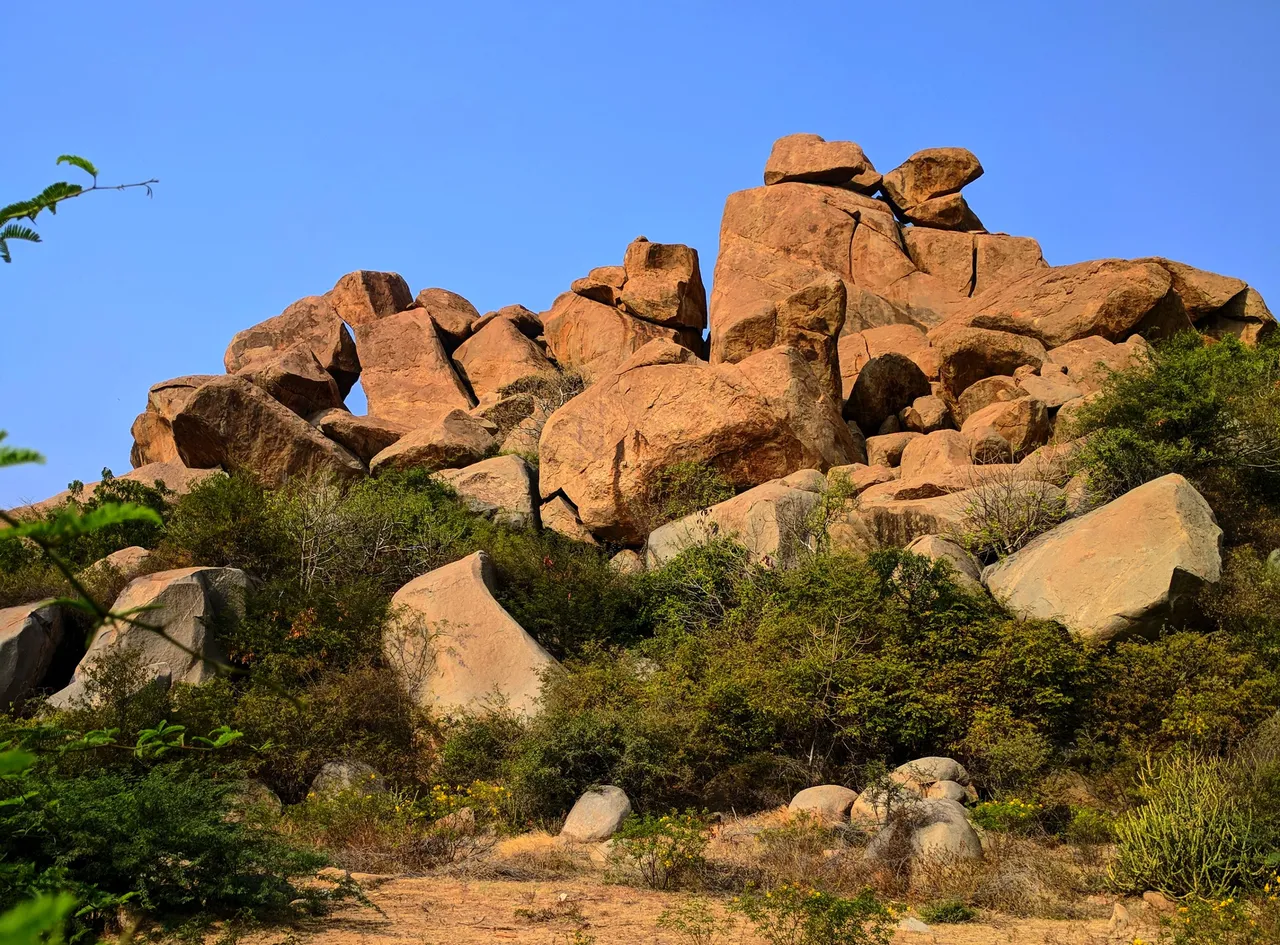
When we sat on the table, the waiter rushed to my side, unfolded a cloth on the table and placed it on my lap. He tactfully did not do the same for Bianca, which did not escape her notice. When I reached for the utensils to grab some of the food from the dishes, he took them from my hands and proceeded to do it himself. Again, he did not do so for Bianca. As we ate, two of them stood nearby keeping an eye on us. When I finished my first serving, I was about to grab some more food again, but one of them immediately rushed to my side, murmured something gently, and taking the utensils from my hands again, he took portions from the dishes and placed them on my plate. He did not do the same for Bianca, who glared at me indignantly as if I had put them up to the task with explicit instructions to ignore her. After the meal, we asked them to add a couple of water bottles so we could take them to our room. As we stood up to go, one staff members took the two bottles of water and carried them for us all the way up to third floor and into our room, where he promptly placed them in the small refrigerator. We gave him a token of appreciation for his diligent service. I found the whole experience charming in an antiquated way, though Bianca’s inner feminist was not so enamored with the male-centric aspect of it. To me it spoke of ages of tradition in which it is believed the customer has paid for the best, and that's what he (or she) should get. Don't think I'm some kind of dandy who loves to be spoiled and pampered, but why shouldn't a man be treated like a sultan once in a while? 👑
While the temples and ruins are located in Hampi, we stayed in a nearby city called Hospet. In the morning of January 5, we woke up in that mysterious city to the sound of prayers over the loud speakers. I looked out the window and saw the sun beginning to rise.
After breakfast we set up a tour for the ruins that were scattered throughout the city of Hampi in what used to be the ancient Vijayanagara empire. Looking outside the window, I spotted a few visitors outside. Smart and conniving. I made sure the window was closed because the monkeys looked fairly agile as they hung around outside.
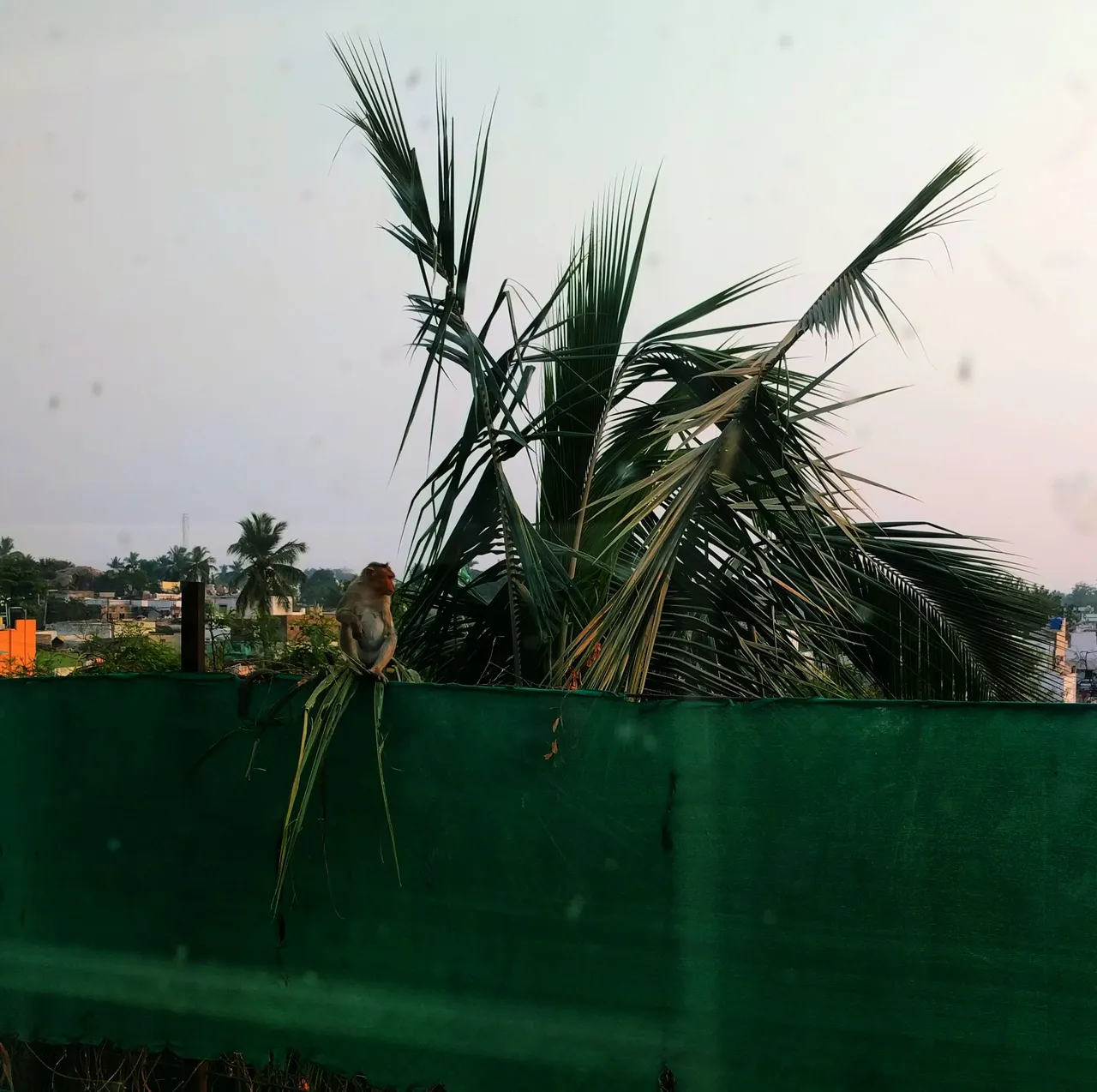

One day, as one of the chiefs of the region that would later be called Vijayanagara, was out hunting, he was astonished when a hare attacked his dogs instead of running away. Later, he found a sage, Madhavacharya Vidyaranya (Forest of Learning), who was engaged in meditative practices along the Tungabhadra riverbank, and advised the chief to build a city in that spot. This is one of many stories about how the Vijayanagar empire was born around 1336 on the rocky hills where now lie the ruins of Hampi. While the details of each story changes, most of the them involve mysterious sages, hermits, or ascetics such as Madhavacharya, who sometimes along with two brothers, appear in various forms as key actors in the founding of the city: Vijayanagar- City of Victory.
Different Hindu groups had gathered in this area because of the invasion of Islamic armies from the north. The region was steeped in violence because different religious groups vied for power, destroying each other’s temples, lives, and livelihoods. In time, the ruthlessness of the violence abated, though the fighting remained for centuries.
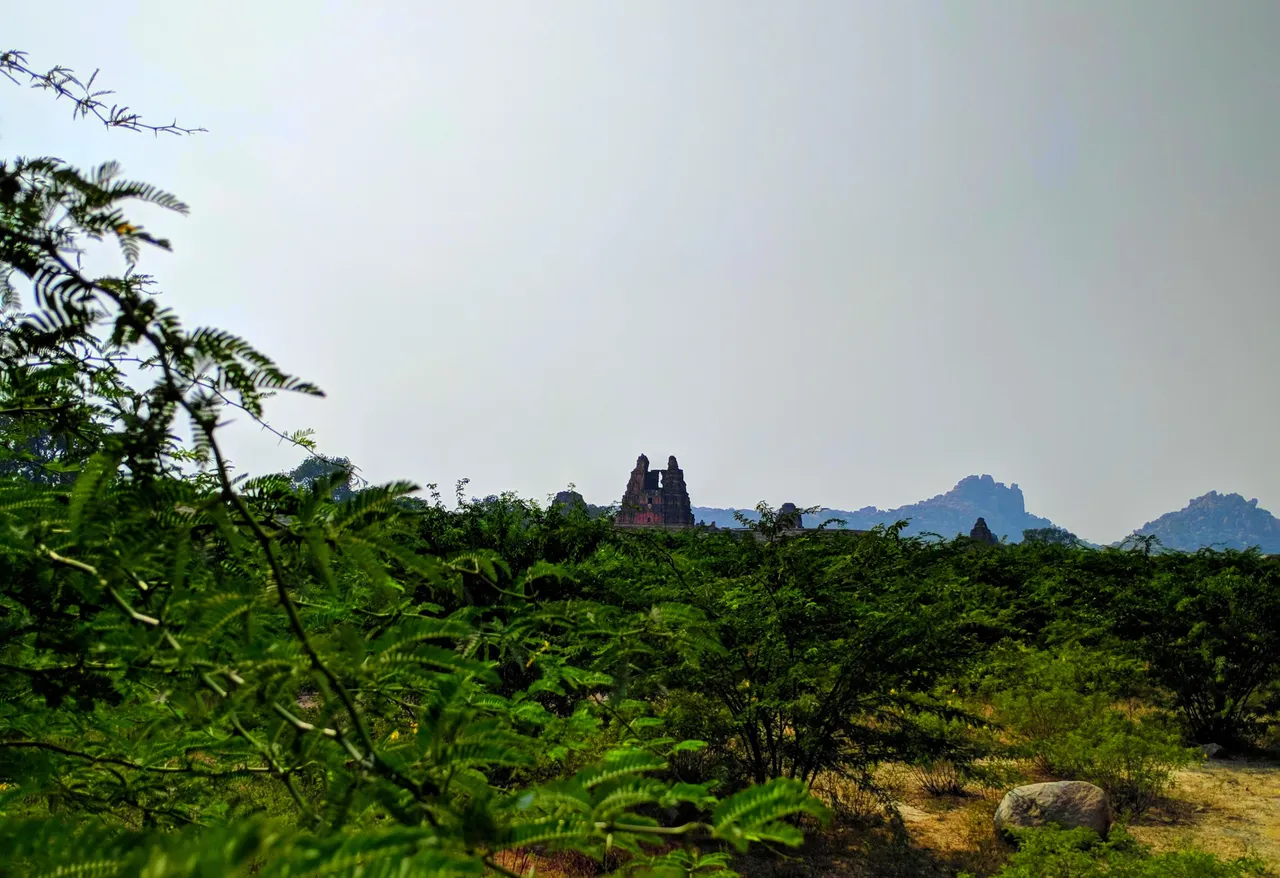
Vijayanagar was a city of outcasts, refugees, and warriors. It was the last stand of a people blown into the maelstroms of history. In spite of the violence, they thrived in this area and grew into an empire tolerant of different metaphysical belief systems, developing into one of the most amazing, albeit lesser known, civilizations the world has ever known.

The sun was rising on the horizon as the car made its way through the streets of Hospet towards Hampi, where Bianca and I would start the tour we had arranged back at the hotel, consisting of several ruins scattered south of the Tungabhadra river, beginning near the birthplace of the Vijayanagara empire.

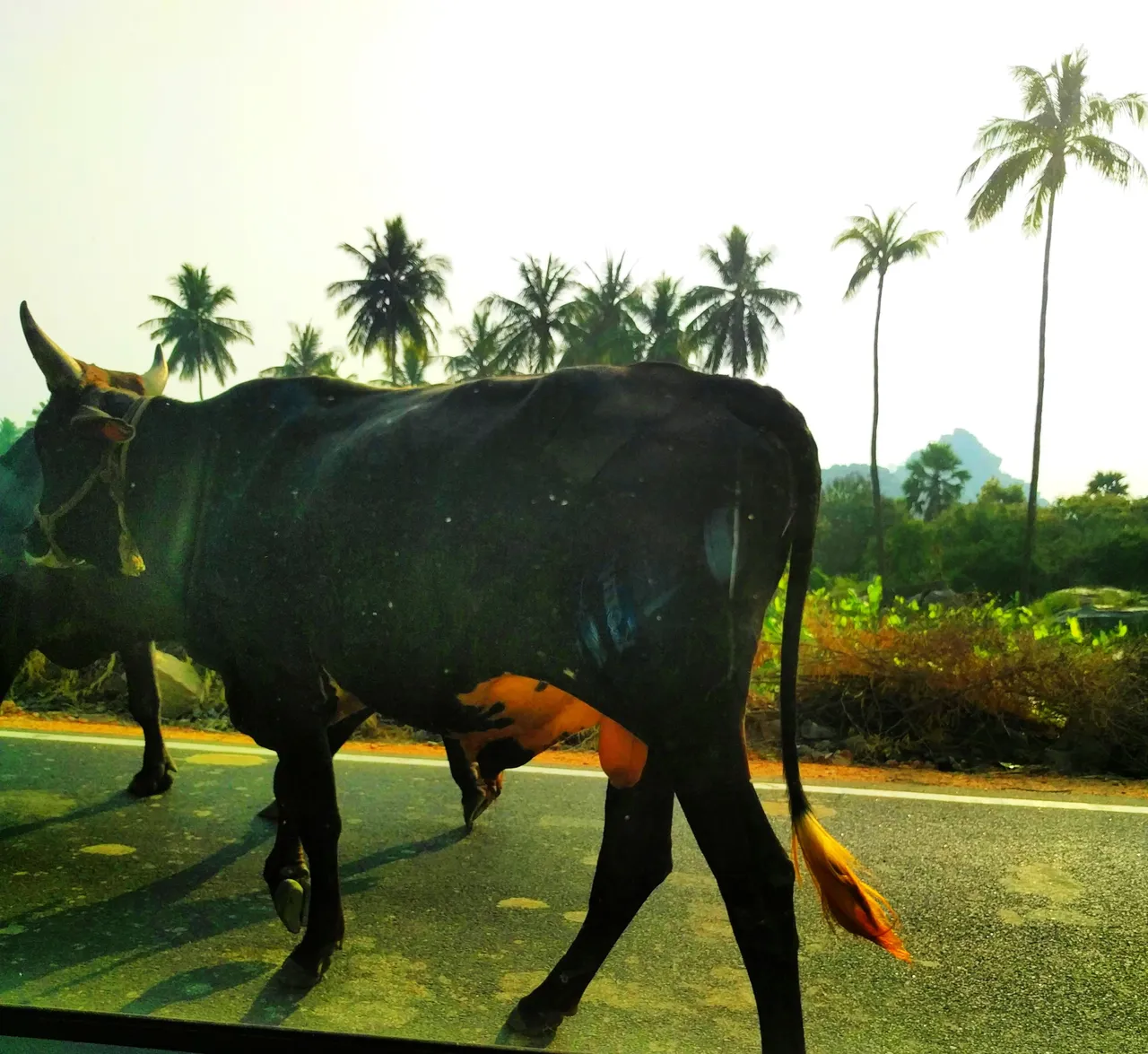
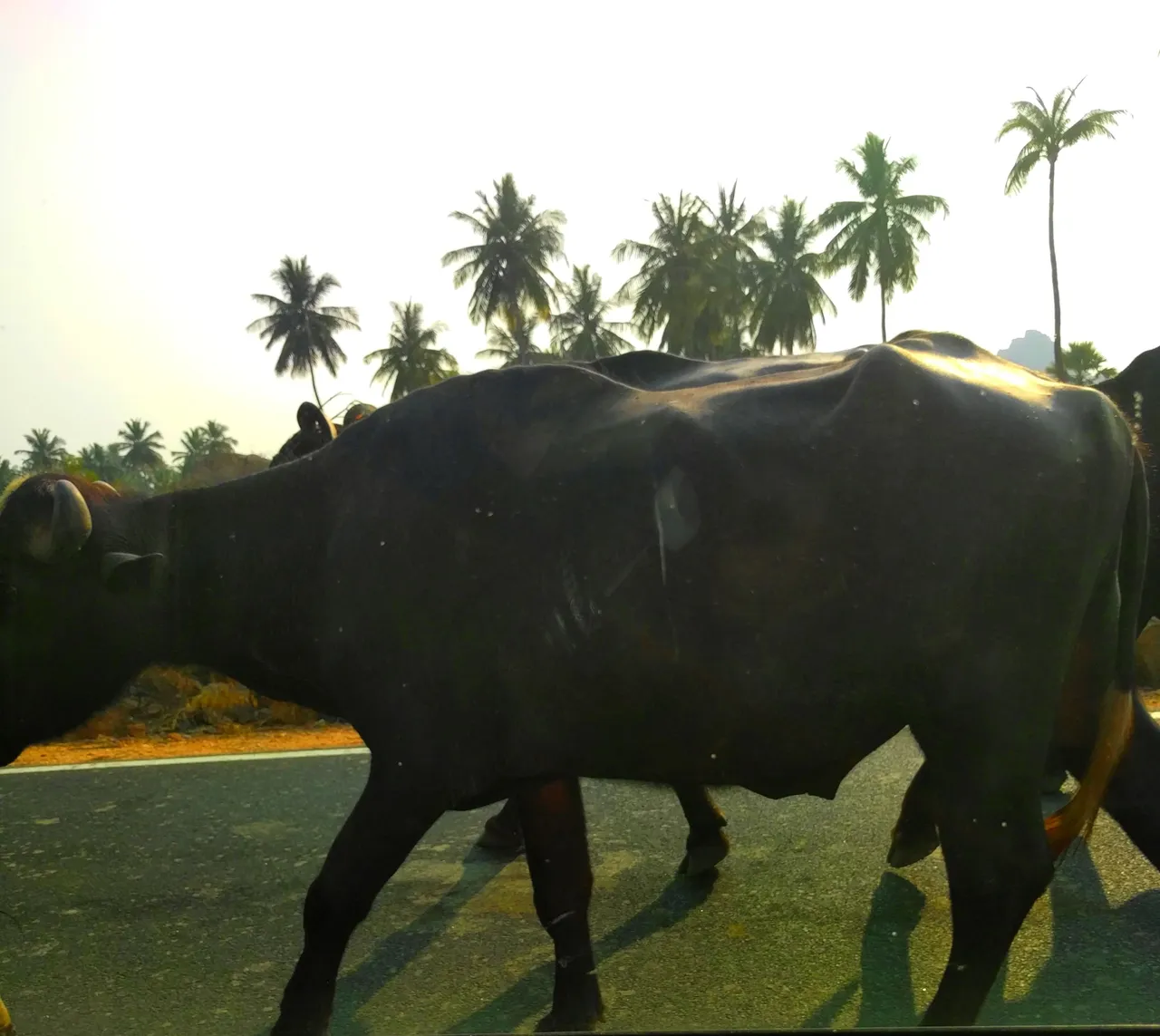
One of the most surprising things about India is its variety of cultures, a richness that cannot be fully grasped unless you experience it. Away from the tourist-friendly and European-influenced Goa, I couldn't help but feel that Bianca and I were now inside of India in her raw wild form. The dark faces stared curiously from veils protecting against the sun. The colorful clothing and glimmering jewels. Here was Shiva dancing in his eternal fire of enlightenment and creation, there was Kali with tongue lolling and eyes in wide madness staring into the abyss of destruction, here was India as it once was and how it would remain for centuries to come. With her rosy colored cheeks and sleek braided hair, India moved closer to us, swaying boulders and steamy groves, she called us into the middle of her dancing flames.
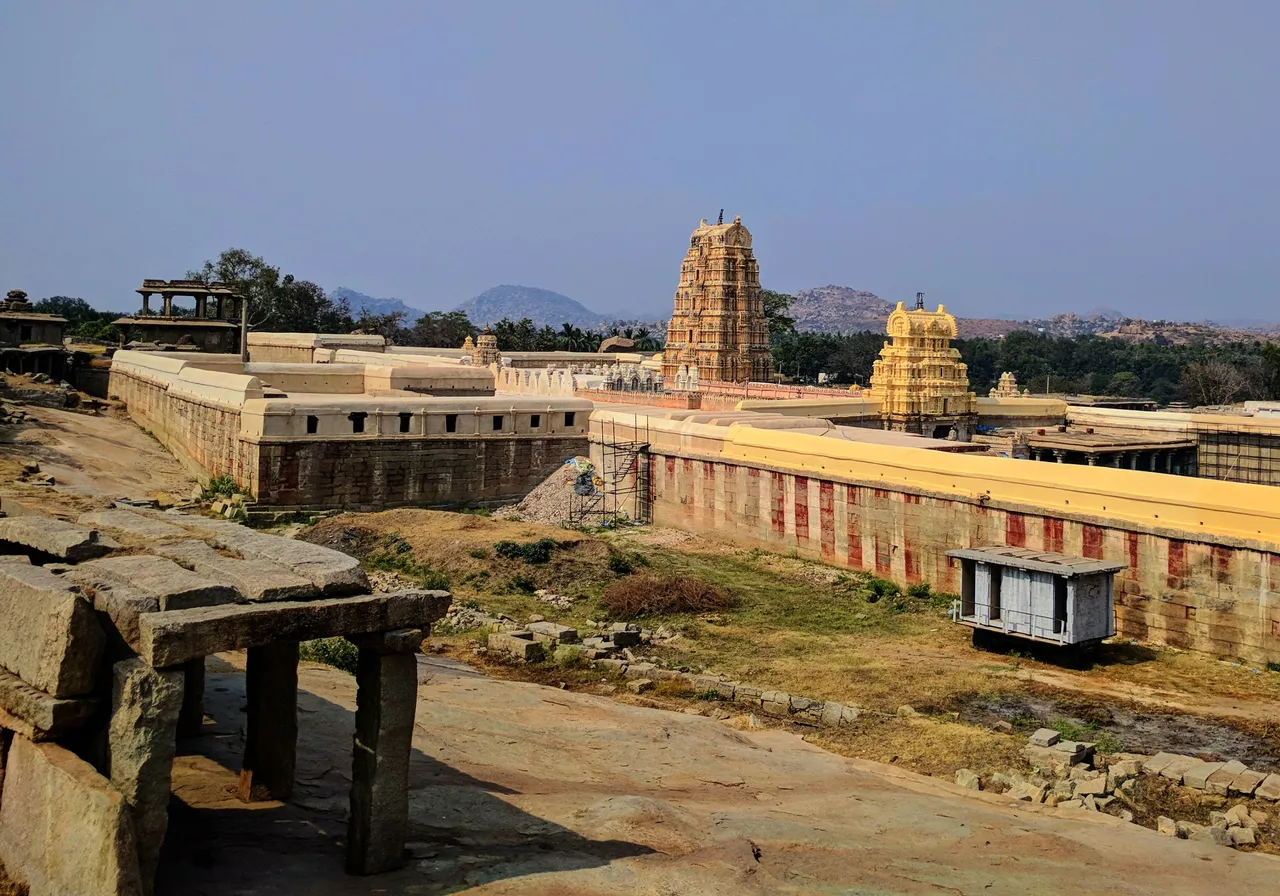

Sources
Sewell, Robert, Fernão Nunes, and Domingos Paes. 2000. A Forgotten Empire (Vijayanagar): A Contribution to the History of India. Asian Educational Services.
Vijayanagara Empire wikipedia page
https://en.wikipedia.org/wiki/Vijayanagara_Empire
Dive into another section:
1.1, 1.2, 1.3, 1.4, 2.1, 2.2, 2.3, 2.4, 3, 4.1, 4.2, 4.3, 5.1, 5.2, 6.1, 6-8, 9, 10, 11.1, 11.2

Images by @litguru using a Nexus 6P. Separator graphics generated using Stable Diffusion software